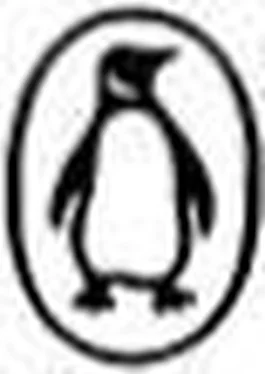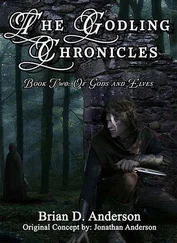Davidson, H. - Gods and Myths of Northern Europe
Здесь есть возможность читать онлайн «Davidson, H. - Gods and Myths of Northern Europe» весь текст электронной книги совершенно бесплатно (целиком полную версию без сокращений). В некоторых случаях можно слушать аудио, скачать через торрент в формате fb2 и присутствует краткое содержание. Жанр: Старинная литература, на английском языке. Описание произведения, (предисловие) а так же отзывы посетителей доступны на портале библиотеки ЛибКат.
- Название:Gods and Myths of Northern Europe
- Автор:
- Жанр:
- Год:неизвестен
- ISBN:нет данных
- Рейтинг книги:5 / 5. Голосов: 1
-
Избранное:Добавить в избранное
- Отзывы:
-
Ваша оценка:
- 100
- 1
- 2
- 3
- 4
- 5
Gods and Myths of Northern Europe: краткое содержание, описание и аннотация
Предлагаем к чтению аннотацию, описание, краткое содержание или предисловие (зависит от того, что написал сам автор книги «Gods and Myths of Northern Europe»). Если вы не нашли необходимую информацию о книге — напишите в комментариях, мы постараемся отыскать её.
Gods and Myths of Northern Europe — читать онлайн бесплатно полную книгу (весь текст) целиком
Ниже представлен текст книги, разбитый по страницам. Система сохранения места последней прочитанной страницы, позволяет с удобством читать онлайн бесплатно книгу «Gods and Myths of Northern Europe», без необходимости каждый раз заново искать на чём Вы остановились. Поставьте закладку, и сможете в любой момент перейти на страницу, на которой закончили чтение.
Интервал:
Закладка:
First Loki tried a race at eating with a man called Logi. He was utterly outstripped, for though he rapidly devoured all the meat he was given, Logi swallowed the bones and the trough as well. Next Thialfi, who was a swift runner, ran races with a lad called Hugi, but Hugi was able to reach the end of the course and come back to meet him every time. Then Thor made trial of his strength in a drinking contest. Thor was given a huge horn, which he expected to empty easily, but after three attempts to do so he found that the liquid had only dropped a little below the rim. Next the king suggested that he should try the feat of lifting the cat up from the floor. A great grey cat jumped down in front of him, and Thor grasped it round the middle and exerted all his strength, but was only able to raise one of its paws off the ground. Finally Utgard-Loki called in his old foster-mother to wrestle with Thor. She seemed a decrepit old woman, but Thor with all his power could not get her off her feet. When however she grasped hold of him, he was forced down on one knee before the king stopped the conflict.
The discomfited god and his companions were then given splendid hospitality, and stayed there that night. Next morning Utgard-Loki himself escorted them to the gate, and once they were safely outside, he revealed the truth to them. Thor and his comrades had been deceived by cunning magic, altering the appearance of things. The three blows struck at Skrymir – who in fact was Utgard-Loki himself – had fallen on to the earth, and Thor’s hammer had left three mighty pits in the hill which the giant had interposed between himself and the angry god. The bag which could not be undone had been fastened by iron bands. As for the contests in the hall, they had not been what they seemed. Loki’s opponent was Logi (Fire), which consumes all things more swiftly than any man or god. Thialfi had raced against Hugi (Thought), swifter than any man in its flight. The horn offered to Thor had its tip in the ocean, and the great draughts he had drunk had lowered the sea-level down to ebb tide. The cat was in truth the ancient monster, the World Serpent, so that all were terrified when Thor’s strength proved great enough to raise it a little way from the depths of the sea. His opponent in the wrestling was no other than Elli (Old Age), who can overcome the strongest. When he learned how he had been tricked, Thor in his rage swung his hammer, intending to destroy the stronghold, but even as he did so it vanished from sight, and they were alone on the plain.
Thor’s Fishing
Perhaps it was to take vengeance for this humiliation – or so at least it was suggested to Gangleri – that Thor set out to visit the giant Hymir, in the guise of a youth. He asked to go fishing with Hymir, and when sent off to get some bait, he took the giant’s biggest ox and cut off its head to take along with them. The boat moved so fast once Thor took the oars that Hymir was astounded, and before long they reached the fishing ground. Thor rowed on still further, although Hymir tried to prevent him for fear of disturbing the Midgard Serpent, and when at last he threw the ox-head out into the sea, it was indeed the serpent which took the bait. Thor had to exert all his divine strength, and before long, digging his heels through the boat and pushing hard against the sea bottom, he hauled up the monster, and they stared fiercely into one another’s eyes. At this terrible sight, Hymir was panic-stricken, and as Thor raised his hammer, he cut the line. The serpent sank back into the depths of the sea, and Thor in anger knocked the giant overboard and waded back to shore. Whether he struck off the serpent’s head before it sank, or it still lies coiled round the earth, Gangleri was unable to discover.
4. The Doom of the Gods
The Death of Balder
Next Gangleri learned of the event which led to the destruction of the earth and of Asgard, the death of Balder the Beautiful. Balder, son of Odin, had ominous dreams, and the gods, fearing that danger threatened him, sent Frigg to extract an oath from all things on earth, whether living creatures, plants, or things of metal, wood, and stone, that they would do no harm to Balder. After this they found it amusing to fling darts and hurl heavy objects at Balder, knowing that they could do him no hurt. But Loki took on the disguise of a woman, and talked with Frigg. He learned that one little plant, the mistletoe, had taken no oath, since Frigg had thought it too young to threaten Balder. Filled with spite, Loki pulled up mistletoe and persuaded Hoder, the blind god, to throw it at Balder in sport, guiding his hand as he threw. The dart pierced Balder through, and he fell dead to the earth.
Bitter indeed was the grief of the Aesir, and Odin’s most bitter of all, since he alone knew the extent of the loss they had suffered. Frigg begged that someone would ride to the kingdom of death and bring Balder back to them. Hermod, another of Odin’s sons, agreed to make the perilous journey, riding Odin’s horse Sleipnir. The gods meanwhile took up Balder’s body and laid it on a funeral pyre built on his own ship, Hringhorni . A giantess pushed it off the rollers into the sea, and there Balder was burned on the pyre, with his wife Nanna, who had died of grief, and his horse beside him. Odin laid the gold ring Draupnir, one of the great treasures of the gods, upon the pyre as a last gift. All the gods and goddesses came to Balder’s funeral.
Hermod’s Ride to Hel
Meanwhile Hermod had been riding down the dark road to the land of the dead, and over the bridge that spanned the Resounding River. There was a maid, Modgud, guarding this bridge, and she came out in wonder to see who came riding with such noise and tumult. Balder, she said, had already passed that way, and five troops of the dead, but this newcomer was not like such travellers, and had the aspect of a living man. At last Hermod reached Hel-gate, and Sleipnir leaped over it with ease. The hall of Hel stood open before them, and Balder was sitting in the high seat. Hel was willing to release him on condition that all things in the world, living or dead, would weep for him. But should any creature refuse to weep, she said, then he must stay with her and never go back to the Aesir. So Hermod bade farewell to Balder, who gave him Draupnir to bear back to Odin and many rich gifts besides, and returned with Hel’s answer.
At the summons of the gods, all things did indeed weep for Balder, men and beasts, stones and metals, in the way that we see all things weep after frost, when the air grows warm again. But at last the messenger of the gods came to a giantess, alone in a cave. When they asked her to weep for Balder, her reply was a deadly one:
Alive or dead, the old man’s son
has been no use to me.
Let Hel hold what she has!
It was believed that this giantess was no other than Loki himself, seeking in his malice to keep Balder in Hel.
The Aesir were so wrathful that Loki knew that this time he had no hope of mercy if they caught him, so he fled from them, built a house with doors looking out in every direction, and then changed himself into a salmon in the river. But Kvasir, the wisest of the Aesir, found some ashes on the hearth where Loki had been burning a net, and from the shape of this he realized that this was the only way to catch the nimble salmon. They made the net to Loki’s pattern, and at the third try they caught him by the tail. Loki was then bound across three flat stones, held down by the entrails of one of his own sons. There he was left to writhe beneath the mouth of a snake, which dropped its poison on to his face. His faithful wife Sigyn sat with a bowl to catch the poison drops, but each time she went to empty it the poison fell on Loki again, and his struggles caused the earth to shake.
Читать дальшеИнтервал:
Закладка:
Похожие книги на «Gods and Myths of Northern Europe»
Представляем Вашему вниманию похожие книги на «Gods and Myths of Northern Europe» списком для выбора. Мы отобрали схожую по названию и смыслу литературу в надежде предоставить читателям больше вариантов отыскать новые, интересные, ещё непрочитанные произведения.
Обсуждение, отзывы о книге «Gods and Myths of Northern Europe» и просто собственные мнения читателей. Оставьте ваши комментарии, напишите, что Вы думаете о произведении, его смысле или главных героях. Укажите что конкретно понравилось, а что нет, и почему Вы так считаете.












